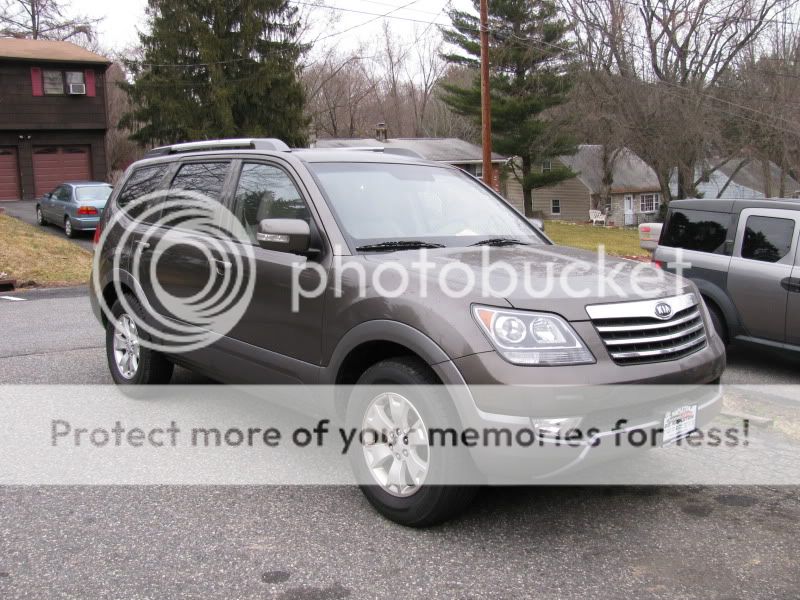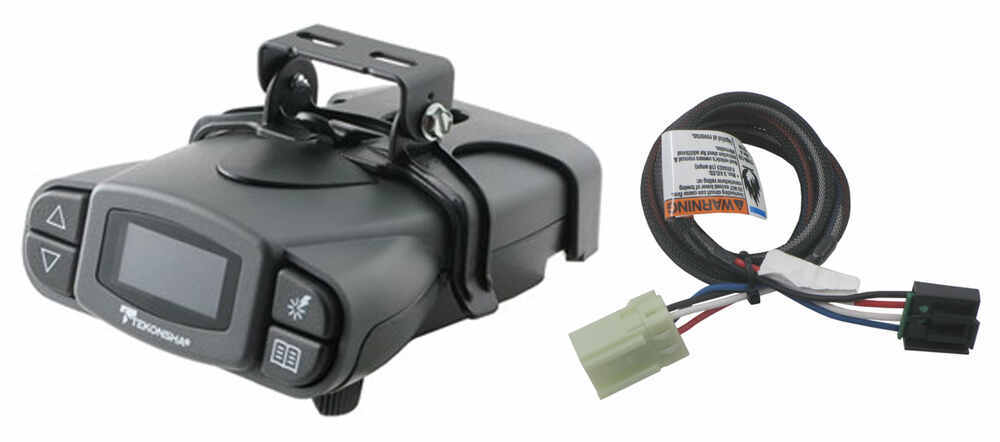- Oct 3, 2007
- 1,539
So my wife and I bought at 2009 Kia Borrego. The Borrego was a short lived (one model year in the US) nameplate here but continues to be sold in other parts of the world as Kia's answer to the Toyota 4Runner. A 4Runner was what we really wanted, but all things being equal (2009, V6, 4WD, 3rd row seat, less than 30K miles, certified pre-owned) the Borrego was about $5K less. It's going to serve as her DD and our family vehicle on the weekends, but with a 260HP/260LB-FT V6 it can also tow 5000lbs. I am looking for a trailer that will hold a half to 3/4 of a cord of wood so that I can use the Borrego to transport firewood and other things when necessary. According to the owners manual towing over 3500lbs requires trailer brakes and a sway control device. I know nothing about how either of these work so I'm hoping to find out more from other more experienced hearth'ers.
I think (but I'm not sure) that it says in the owners manual that there is a connection for electric brakes in the trailer plug in the rear. I always thought that electric brakes required some sort of controller? I can't consult the manual right now because the wife has the car How do trailer brakes work? I know they are "electric" but does that mean that the calipers/shoes are actuated electrically or are they hydraulic just like vehicle brakes but with an electrically operated pump? Finally, how do sway controls work and what exactly do they do? I know that they are supposed to reduce the effects of wind buffeting, but don't they also help during a panic stop? I want to be able to utilize this vehicle for towing only occasionally but I also want to make sure I'm doing it safely.
How do trailer brakes work? I know they are "electric" but does that mean that the calipers/shoes are actuated electrically or are they hydraulic just like vehicle brakes but with an electrically operated pump? Finally, how do sway controls work and what exactly do they do? I know that they are supposed to reduce the effects of wind buffeting, but don't they also help during a panic stop? I want to be able to utilize this vehicle for towing only occasionally but I also want to make sure I'm doing it safely.
I think (but I'm not sure) that it says in the owners manual that there is a connection for electric brakes in the trailer plug in the rear. I always thought that electric brakes required some sort of controller? I can't consult the manual right now because the wife has the car
 How do trailer brakes work? I know they are "electric" but does that mean that the calipers/shoes are actuated electrically or are they hydraulic just like vehicle brakes but with an electrically operated pump? Finally, how do sway controls work and what exactly do they do? I know that they are supposed to reduce the effects of wind buffeting, but don't they also help during a panic stop? I want to be able to utilize this vehicle for towing only occasionally but I also want to make sure I'm doing it safely.
How do trailer brakes work? I know they are "electric" but does that mean that the calipers/shoes are actuated electrically or are they hydraulic just like vehicle brakes but with an electrically operated pump? Finally, how do sway controls work and what exactly do they do? I know that they are supposed to reduce the effects of wind buffeting, but don't they also help during a panic stop? I want to be able to utilize this vehicle for towing only occasionally but I also want to make sure I'm doing it safely.


